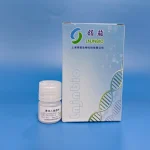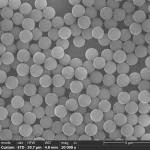Relative Evaluation of the Application of Polystyrene Microspheres and Polystyrene Carboxyl Microspheres in Biotechnology – Focusing on Nucleic Acid Extraction.
(LNJNbio Polystyrene Microspheres)
In the field of contemporary biotechnology, microsphere products are widely utilized in the extraction and filtration of DNA and RNA because of their high specific surface area, excellent chemical stability and functionalized surface area properties. Among them, polystyrene (PS) microspheres and their obtained polystyrene carboxyl (CPS) microspheres are just one of both most extensively studied and applied materials. This short article is supplied with technological assistance and information evaluation by Shanghai Lingjun Biotechnology Co., Ltd., intending to methodically contrast the performance distinctions of these 2 types of materials in the procedure of nucleic acid extraction, covering vital signs such as their physicochemical homes, surface modification ability, binding efficiency and recuperation price, and show their applicable circumstances with speculative information.
Polystyrene microspheres are homogeneous polymer bits polymerized from styrene monomers with good thermal security and mechanical strength. Its surface area is a non-polar structure and usually does not have active useful teams. For that reason, when it is directly utilized for nucleic acid binding, it requires to rely upon electrostatic adsorption or hydrophobic action for molecular addiction. Polystyrene carboxyl microspheres present carboxyl practical teams (– COOH) on the basis of PS microspheres, making their surface area efficient in additional chemical combining. These carboxyl groups can be covalently bonded to nucleic acid probes, healthy proteins or other ligands with amino groups with activation systems such as EDC/NHS, therefore accomplishing extra secure molecular addiction. As a result, from a structural point of view, CPS microspheres have much more benefits in functionalization possibility.
Nucleic acid extraction generally consists of steps such as cell lysis, nucleic acid launch, nucleic acid binding to solid stage carriers, cleaning to remove impurities and eluting target nucleic acids. In this system, microspheres play a core duty as solid stage service providers. PS microspheres primarily count on electrostatic adsorption and hydrogen bonding to bind nucleic acids, and their binding performance has to do with 60 ~ 70%, but the elution performance is low, only 40 ~ 50%. On the other hand, CPS microspheres can not just use electrostatic impacts but likewise achieve even more solid addiction via covalent bonding, minimizing the loss of nucleic acids during the cleaning process. Its binding effectiveness can reach 85 ~ 95%, and the elution performance is additionally raised to 70 ~ 80%. On top of that, CPS microspheres are also significantly much better than PS microspheres in terms of anti-interference capability and reusability.
In order to confirm the performance differences between both microspheres in real operation, Shanghai Lingjun Biotechnology Co., Ltd. conducted RNA extraction experiments. The experimental examples were originated from HEK293 cells. After pretreatment with common Tris-HCl buffer and proteinase K, 5 mg/mL PS and CPS microspheres were made use of for removal. The outcomes showed that the ordinary RNA yield removed by PS microspheres was 85 ng/ μL, the A260/A280 ratio was 1.82, and the RIN worth was 7.2, while the RNA yield of CPS microspheres was boosted to 132 ng/ μL, the A260/A280 proportion was close to the ideal worth of 1.91, and the RIN value reached 8.1. Although the procedure time of CPS microspheres is slightly longer (28 minutes vs. 25 minutes) and the price is higher (28 yuan vs. 18 yuan/time), its removal quality is dramatically enhanced, and it is preferable for high-sensitivity detection, such as qPCR and RNA-seq.
( SEM of LNJNbio Polystyrene Microspheres)
From the point of view of application situations, PS microspheres appropriate for massive screening projects and preliminary enrichment with low demands for binding uniqueness as a result of their inexpensive and easy operation. Nevertheless, their nucleic acid binding capacity is weak and easily affected by salt ion concentration, making them unsuitable for long-lasting storage space or duplicated usage. On the other hand, CPS microspheres appropriate for trace example removal because of their abundant surface functional groups, which promote additional functionalization and can be made use of to build magnetic grain discovery sets and automated nucleic acid removal systems. Although its preparation process is relatively intricate and the expense is fairly high, it reveals more powerful versatility in clinical research and medical applications with strict requirements on nucleic acid removal efficiency and pureness.
With the rapid growth of molecular diagnosis, genetics editing and enhancing, liquid biopsy and other fields, greater demands are placed on the performance, pureness and automation of nucleic acid extraction. Polystyrene carboxyl microspheres are progressively replacing standard PS microspheres due to their exceptional binding efficiency and functionalizable features, becoming the core choice of a new generation of nucleic acid removal products. Shanghai Lingjun Biotechnology Co., Ltd. is likewise continuously optimizing the particle size distribution, surface density and functionalization efficiency of CPS microspheres and creating matching magnetic composite microsphere items to meet the needs of professional medical diagnosis, scientific research institutions and industrial clients for top quality nucleic acid removal solutions.
Provider
Our products are widely used in many fields, such as medical testing, genetic testing, university research, genetic breeding and more. We not only provide products but can also undertake OEM, ODM, and other needs. If you need dna isolation and extraction, please feel free to contact us at sales01@lingjunbio.com.
All articles and pictures are from the Internet. If there are any copyright issues, please contact us in time to delete.
Inquiry us

